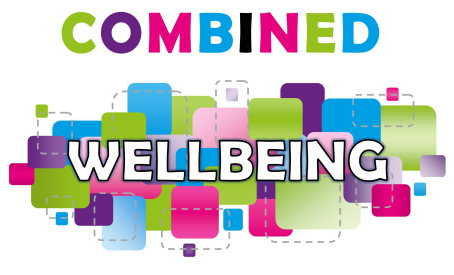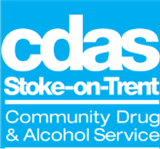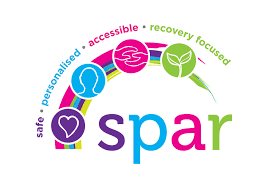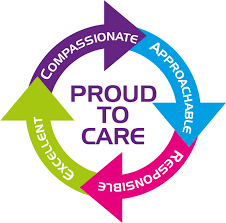Alcohol

Information
North Staffordshire Combined NHS Trust deeply values the vital support and close working relationships we have with carers and relatives of those affected by alcohol use.
We have developed the Relative/ Carer’s section of our Trust Wellbeing Portal to help you navigate any concerns you may have about alcohol-related issues. Whether you’re seeking guidance for yourself, your relative or a friend, the portal provides information, resources and ways to access support when it’s needed most.
Select the underlined questions below to see more.
Alcohol misuse can significantly impact not just the individual, but also those closest to them — including parents, partners, children, siblings and friends. It’s not uncommon for relatives and friends to feel a deep sense of guilt, wondering if they could have done something differently, or if they should have been able to prevent or fix the situation.
We understand how emotionally challenging and stressful this experience can be for everyone involved. That’s why we’ve created a dedicated Relatives/Carers section within our Wellbeing Portal — designed to help you better understand the complexities of alcohol misuse and its effects on your loved one.
Through this space, we aim to offer clear guidance, emotional support and practical advice. We hope it helps you feel more informed and supported, both in caring for yourself and in offering help to the person you’re concerned about.
It can be a difficult and emotional time when someone you care about develops a problem with alcohol.
Their drinking doesn’t just affect them — it can have an impact on family, friends and carers. When alcohol is used to excess, it can lead to serious challenges for everyone involved, including emotional strain, relationship difficulties and daily life disruption.
Sadly, stigma and shame are often linked to alcohol misuse. This can make it harder for families and carers to speak out, leading many to suffer in silence. This isolation can contribute to feelings of anxiety, depression and other health-related issues. It’s completely normal to experience a range of emotions — from anger and confusion to fear and sadness — when faced with a loved one’s alcohol use.
We want you to know that you’re not alone. Our goal is to support not only the person you are concerned about, but also you, as an individual who may need help and guidance during this time.
To assist you, we’ve included Local Alcohol Service contact details and Carer Support information in the Getting More Information section below. These resources are here to offer you the right advice, support and connections to help you manage this challenging situation.
Encouraging a relative or friend to reduce their alcohol use can be challenging — especially if they don’t believe there is a problem.
Suggestions to cut back on drinking or to seek professional help may not always be well received. For many, recognising and accepting that they have an issue with alcohol is the first and often most difficult step on the road to recovery.
Acknowledging the problem is a significant hurdle, but it’s also the foundation for meaningful change. To support this, we’ve included helpful guidance and resources within the Patient section of the Wellbeing Portal. You may wish to gently suggest these materials to your loved one as a potential starting point for their own journey towards seeking help.
In some cases, this may lead to them taking the first steps towards recovery by contacting a specialist alcohol service. You may also find yourself in a position where you’re advocating on their behalf — especially if their alcohol use is severe. However, it’s important to ensure that you have their consent before reaching out to services or making contact on their behalf.
You can find details for your local specialist Alcohol Service in the Getting More Information section below.
The government has recommended guidelines on alcohol use and these are measured in units. Measuring in units may not come naturally and sometimes it is easier to think about units in terms of actual alcoholic drinks that you’re familiar with.
The government have set alcohol guidelines. Guidelines for men and women are now the same and recommend that:-
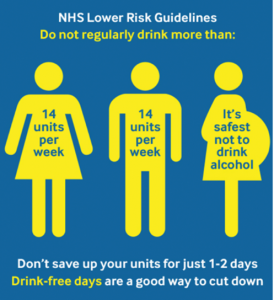
- No more than 14 units of alcohol per week
- Spread the 14 units over at least three days of the week
- Try to have regular alcohol free days
Here is an illustration of what 14 units of alcohol looks like against certain alcoholic beverages based on average percentage strengths. This information should help your relative/ friend calculate safe alcohol consumption based on their alcoholic drink of choice
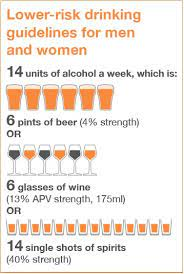
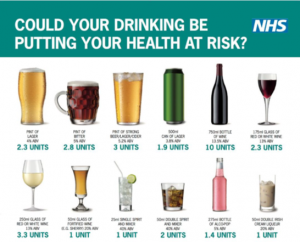 Also to reduce the short-term health risks of drinking (such as injuries from falling over) try to encourage your relative:-
Also to reduce the short-term health risks of drinking (such as injuries from falling over) try to encourage your relative:-
- limit the amount in one sitting
- drink slowly
- try to drink with food and space drinks with water or soft drinks
No known level of drinking is completely safe, especially in terms of illnesses such as cancer.
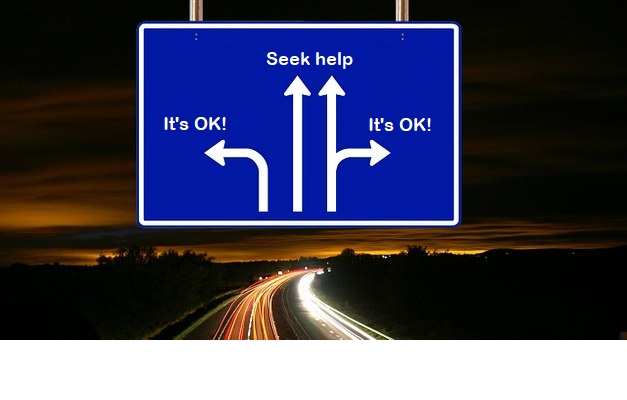
Coping with
In this section, we aim to provide you, as a relative or carer, with practical advice to help you support the person you are caring for.
One of the most important things to understand is that stopping alcohol suddenly after long-term or heavy use can be dangerous. While it may seem like a positive step, abruptly cutting out alcohol without medical supervision can lead to serious health risks — including the possibility of seizures, which in some cases can be fatal.
Because of this, it’s vital that anyone considering reducing or stopping their alcohol use does so with professional advice and support, ideally through their GP or local Specialist Alcohol Service. These professionals can assess the level of risk and, if needed, put in place a safe plan for withdrawal and ongoing support.
If you are unsure where to turn, please refer to the Getting More Information section for details of local services who can help guide you and your loved one through this process safely.
The following buttons are self-help suggestions

Finding help
Who can they talk to?
- GP
- Health professionals
- Family
- Friends
- Local Drug and Alcohol Services
- Helplines and Charities
- NHS Website
Select the underlined topics below to view what resources are available.

Getting more help
If you haven’t already found the help you’re looking for, you can find additional information and services which are more interactive here.
